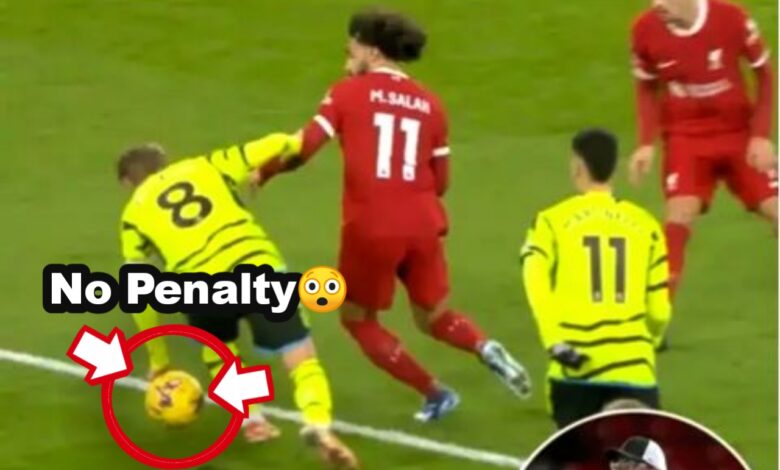VAR has provided clarity on the unexpected reasoning behind not classifying Odegaard’s handball incident as a penalty.

A recent revelation has brought attention to the reasoning behind VAR officials’ choice not to award a penalty in the incident involving Martin Odegaard, causing controversy in the football world. The decision hinged on the perception that Odegaard was considered to be “falling” and “moving his arm in towards his body.”
This explanation has sparked widespread debates, delving into the consistency and interpretation of VAR decisions in football. It has prompted critical questions about the application of rules and the subjective nature involved in evaluating players’ movements during pivotal moments in a match.
Renowned football figure Howard Webb has joined the conversation, aligning with the belief that, if the rules were applied correctly, Liverpool should have been granted a penalty. Webb’s endorsement lends significant weight to the argument that the VAR decision might have been flawed, contributing to the ongoing discourse surrounding the implementation of Video Assistant Referee technology in the sport.
The incident in question has not only triggered discussions about individual decisions but has also prompted a broader reflection on the effectiveness and objectivity of VAR in upholding fairness and accuracy in football officiating. The controversy surrounding VAR decisions remains a focal point in the football community, with fans, pundits, and experts scrutinizing the nuances of each incident.
The debate over whether Odegaard’s actions justified the denial of a penalty highlights the inherent challenges and complexities associated with leveraging technology for officiating. It underscores the delicate balance required to ensure that VAR decisions align with the spirit of the game and maintain a sense of fairness.
As the footballing world grapples with refining the VAR system, incidents like these serve as catalysts for discussions on how to achieve consistency and transparency in decision-making. The aim is to enhance the overall integrity of the game, addressing concerns about subjectivity and ensuring that VAR contributes positively to the sport’s officiating dynamics.




